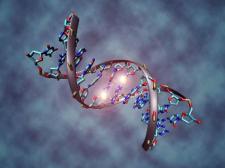Aggregated News

Our genes are not just naked stretches of DNA.
They’re coiled into intricate three-dimensional tangles, their lengths decorated with tiny molecular “caps.” These so-called epigenetic marks are crucial to the workings of the genome: They can silence some genes and activate others.
Epigenetic marks are crucial for our development. Among other functions, they direct a single egg to produce the many cell types, including blood and brain cells, in our bodies. But some high-profile studies have recently suggested something more: that the environment can change your epigenetic marks later in life, and that those changes can have long-lasting effects on health.
In May, Duke University researchers claimed that epigenetics could explain why people who grow up poor are at greater risk of depression as adults. Even more provocative studies suggest that when epigenetic marks change, people can pass them to their children, reprogramming their genes.
But criticism of these studies has been growing. Some researchers argue that the experiments have been weakly designed: Very often, they say, it’s impossible for scientists to confirm that epigenetics is responsible for...



